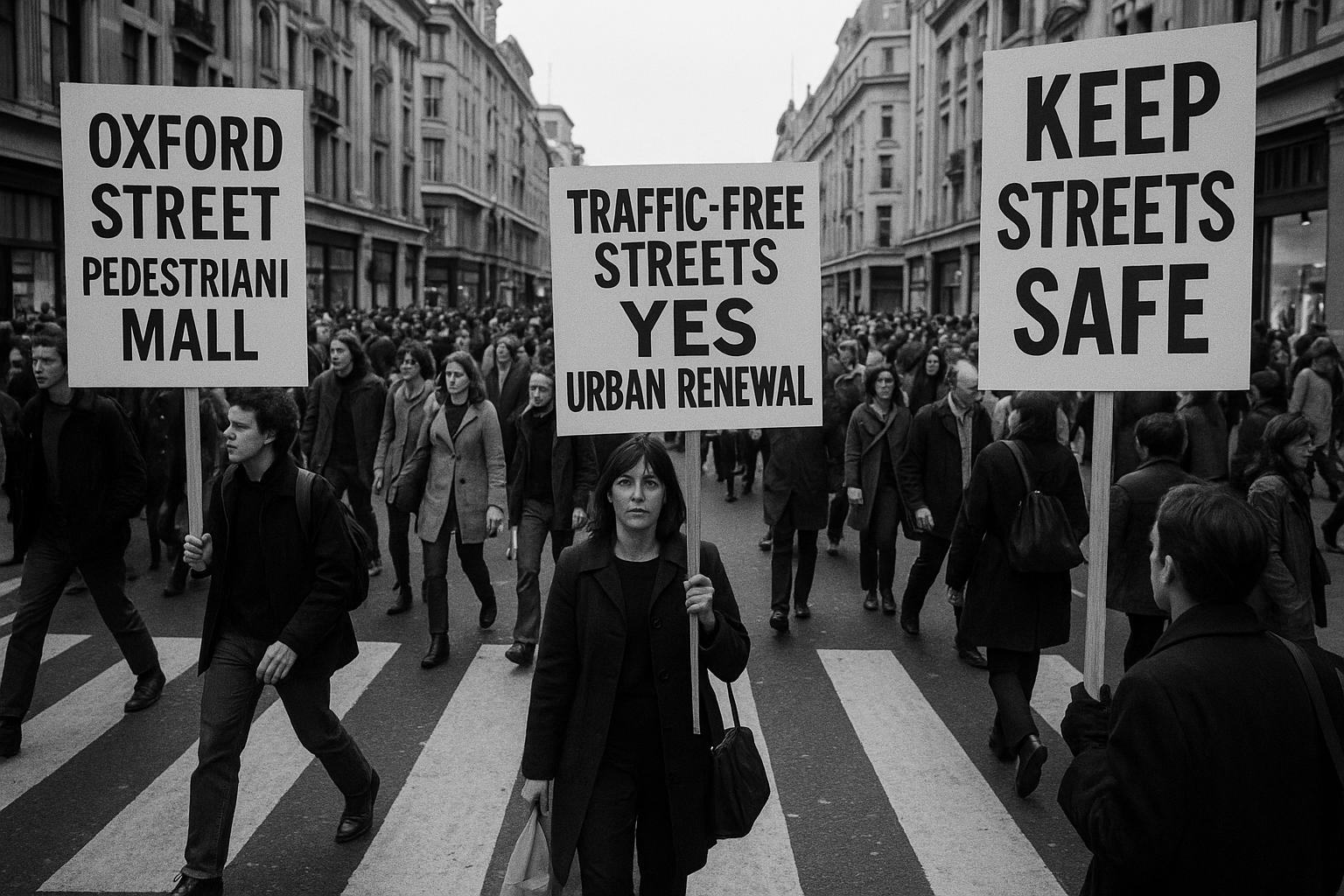London’s iconic Oxford Street is set to undergo a transformative pedestrianisation scheme, with Mayor Sadiq Khan confirming plans to close the 0.7-mile stretch between Oxford Circus and Marble Arch to all vehicular traffic. This bold move aims to reinvigorate the world-famous shopping district, which draws around half a million visitors daily and contributes an estimated £25 billion annually to London’s economy. The mayor insisted that the majority of Londoners support the scheme, citing a recent consultation where approximately 66 to 70 percent of respondents, including local businesses, expressed approval. City Hall plans to implement the changes swiftly, emphasising the creation of a vibrant, accessible public space established on the model of successful pedestrianised areas such as Times Square in New York and La Rambla in Barcelona.
The pedestrianisation initiative is positioned as a crucial part of Oxford Street's recovery from economic challenges linked to the COVID-19 pandemic and the growing dominance of online shopping. Business leaders from key establishments such as Selfridges, John Lewis, and IKEA have publicly welcomed the plans, viewing them as necessary to secure the street’s future as a top retail destination. According to City Hall’s economic analysis, the pedestrianisation could increase Gross Value Added by nearly £82 million annually and support the creation of an additional 781 jobs. It may also generate a VAT uplift of between £30 million and £40 million, alongside an increase in business rates estimated at £10 million to £20 million, offering substantial benefits both locally and nationally.
To oversee the redevelopment of this strategic commercial artery, the Greater London Authority will establish a Mayoral Development Corporation this year, partnering with local authorities and the government to ensure smooth delivery. Notably, Westminster City Council, which previously opposed similar plans in 2018 over concerns of traffic congestion and disruption, now appears inclined to collaborate, albeit with reservations. Councillors have voiced worries that the pedestrianisation may exacerbate crime rates and could render the street a more attractive target for terrorist activity. The council has spent the past two years developing its own £150 million regeneration proposal, which would keep the street open to some traffic, and there is talk of potential legal challenges to Mr Khan’s plan.
Concerns about safety and policing have been raised by various stakeholders, including the London Taxi Drivers’ Association. Drivers have reported diminished confidence in police responses to the street’s ongoing issues with street crime such as phone snatching. Similarly, local resident groups caution that removing vehicles like buses and taxis might reduce natural surveillance and deterrents, increasing vulnerability especially for evening visitors and women. Accessibility is another critical concern; existing narrow pavements challenge disabled users and elderly residents, who fear the changes may limit their mobility and access to homes. The redevelopment will require diversion or removal of up to 16 bus routes currently serving the street, prompting calls for improved public transport alternatives and enhanced policing to maintain safety.
Environmental groups have welcomed the pedestrianisation plan for its potential to reduce the heavy pollution and noise that currently plague Oxford Street, creating a more pleasant atmosphere for shoppers and residents alike. Supporters argue that removing traffic will reduce carbon emissions and allow for the planting of trees and the creation of green spaces, contributing to London’s broader environmental goals. The mayor’s office stresses that the pedestrianisation is not just a commercial upgrade but a chance to craft a world-class public venue for leisure, shopping, and cultural events that Londoners can take pride in.
Despite the enthusiasm from the mayor and many in the business and environmental communities, the scheme remains controversial. It follows shortly after Sadiq Khan was knighted for political and public service, an honour that some Conservative politicians have criticised given ongoing concerns about crime in the capital. Mr Khan expressed pride in his background growing up on a council estate, framing the pedestrianisation as part of his broader vision to build a "fairer, safer, greener and more prosperous London for everyone."
📌 Reference Map:
- Paragraph 1 – [1], [2], [3]
- Paragraph 2 – [4], [2], [3]
- Paragraph 3 – [6], [2], [1]
- Paragraph 4 – [1], [6], [1]
- Paragraph 5 – [7], [1], [2]
- Paragraph 6 – [1], [5], [1]
Source: Noah Wire Services
